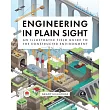Various metals (including precious, critical and strategic metals) are needed for technologies, the sustainable development of society and everyday life. The demand for metals will increase over time. The processing of lower-grade and complex ores and metal extraction waste is essential, necessitating the implementation of novel approaches and technologies for carrying out mineral processing and metal extraction. To ensure a sufficient supply of metals in the future, they need to be recovered from unconventional sources. To produce metals, mined minerals must pass through a mineral beneficiation stage, followed by metallurgy/hydrometallurgy, or sometimes, they are directly subjected to hydrometallurgy. The flotation concentration of metal-containing ores is the most used mineral beneficiation process. Its efficiency depends on the preparation of minerals, the flotation reagent type and the concentration and other parameters of the flotation process, such as pulp pH values and oxidation-reduction conditions, temperature, applied external energy impacts, etc. A section of this Special Issue focuses on developments in flotation. Hydrometallurgical technology is a powerful means of extracting metals from concentrates, as well as low-grade ores and ores containing precious metals or rare earth elements (REEs). Another section is devoted to studies on hydrometallurgical methods. The waste obtained from mining, mineral processing and extractive metallurgy represents an unconventional source of metals. The third section of this Special Issue considers the extraction of metals from solid and liquid mining waste.



 天天爆殺
天天爆殺  今日66折
今日66折 




























 博客來
博客來 博客來
博客來 博客來
博客來 博客來
博客來 博客來
博客來